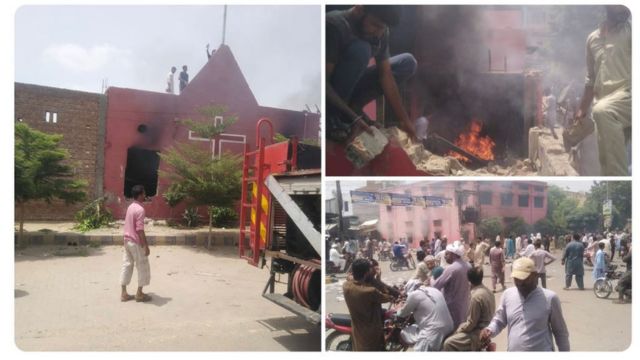After bloody assaults to dozens of churches, Karachi police has found a solution for the Christians: “Deploy private security guards.”
by Massimo Introvigne

August was one of the worst months in recent years for the number of assaults to Christian churches in Pakistan, with dozens of places of worship burned or demolished.
Besides arresting Christians for having allegedly provoked the rioters, the Pakistani police has now found a solution for this crisis, and a simple one.
Having inspected an area of Karachi notorious for sectarian conflict, and visited places of worship of different religions, the police issued on September 10, 2023, “Security Directions for Churches” (mosques are not mentioned).

The police recommends (or rather orders, since “strict compliance” is required), that
“Private security guards be deployed outside the main gate of the church along with metal detector equipment.” Details are as follows: “Private security guard will be deployed on the roof bunker especially made as the backup for gate security. Walk through gates to be installed on the entrances of church. All the windows of churches to be covered with iron grill. CCTVs to be installed inside and outside the premises of churches and must be of great quality such as 6 MP / Night Vision with 15 days minimum back up. Walls of the churches must be fenced properly to avoid any untoward incident.”
The police kindly promises to keep in touch with the private guards hired by Christians. “Security coordinator of churches will keep in contact with the area SHO / HM / Intelligence Officer and will always update about any new upcoming event whenever it is arranged in the church so that necessary security could be provided to the concerned.” The document also adds that for “All the private guards deployed on the security of church, their information, previous record is to be maintained and checked by the area PS time to time,” a provision that is more about surveilling the private guards than helping them.
What the document says, in so many words, is that the Pakistani police is not capable or perhaps not willing to protect Christian churches. Christian taxpayers should hire and pay private guards. The police would check who these guards are—perhaps to make sure they are not “too” effective. — Bitter Winter






